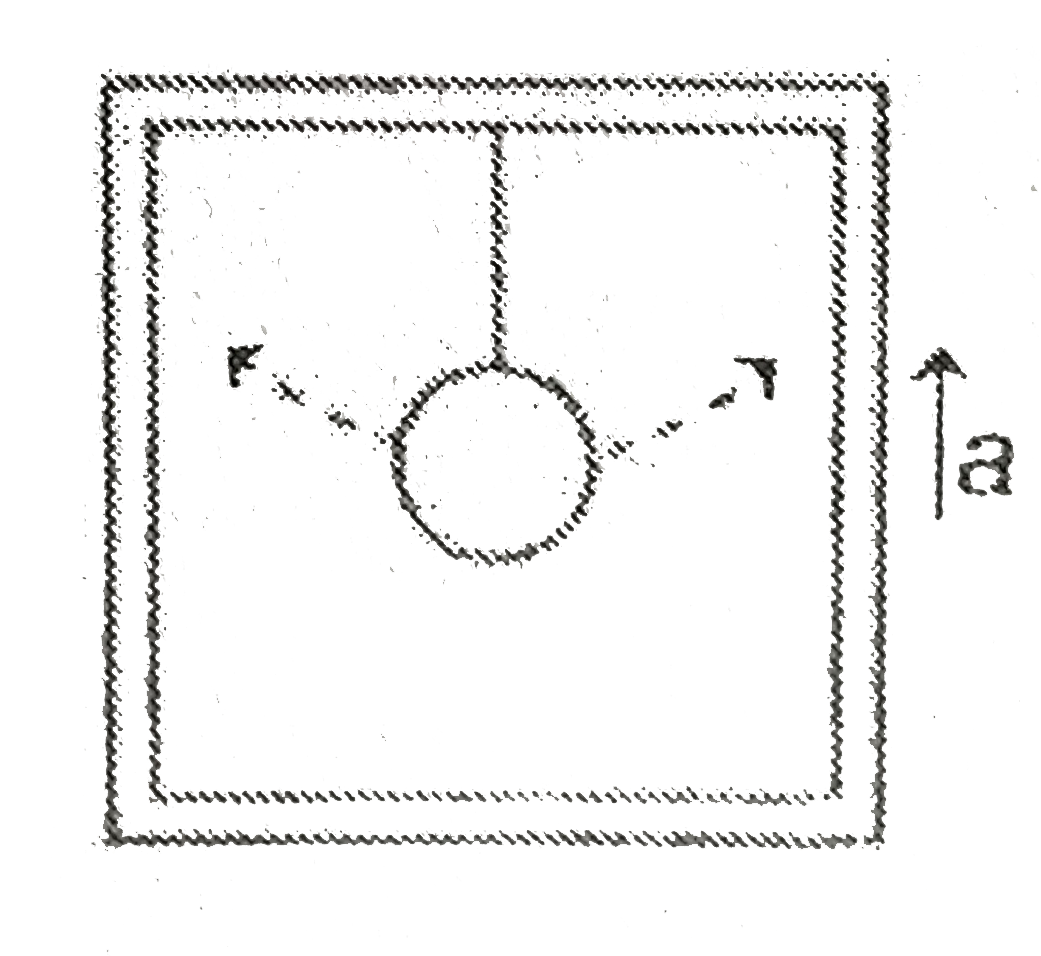The time period of a simple pendulum of length L as measured in an elevator descending with acceleration g / 3 is
2π√3Lg
π√(3Lg)
2π√(3L2g)
2π√(3L3g)
The correct Answer is:C
To find the time period of a simple pendulum of length L in an elevator descending with an acceleration of g3, we can follow these steps:
Step 1: Determine the effective gravitational acceleration
When the elevator is descending with an acceleration of g3, the effective gravitational acceleration geffective acting on the pendulum can be calculated as follows:
geffective=g−a
where a is the acceleration of the elevator. Here, a=g3.
Substituting this into the equation gives:
geffective=g−g3=g(1−13)=g(23)=2g3
Step 2: Write the formula for the time period of a simple pendulum
The time period T of a simple pendulum is given by the formula:
T=2π√Lgeffective
Step 3: Substitute the effective gravitational acceleration into the formula
Now, substituting geffective=2g3 into the time period formula:
T=2π
⎷L2g3
Step 4: Simplify the expression
To simplify the expression, we can rewrite it as:
T=2π√3L2g
Final Result
Thus, the time period of the simple pendulum in an elevator descending with acceleration g3 is:
T=2π√3L2g
When the elevator is descending with an acceleration of g3, the effective gravitational acceleration geffective acting on the pendulum can be calculated as follows:
The time period T of a simple pendulum is given by the formula:
Now, substituting geffective=2g3 into the time period formula:
⎷L2g3
To simplify the expression, we can rewrite it as:
Thus, the time period of the simple pendulum in an elevator descending with acceleration g3 is:
Topper's Solved these Questions
- SIMPLE HARMONIC MOTION BOOK - VMC MODULES ENGLISHCHAPTER - SIMPLE HARMONIC MOTION EXERCISE - LEVEL (2)
40 Videos
- SIMPLE HARMONIC MOTION BOOK - VMC MODULES ENGLISHCHAPTER - SIMPLE HARMONIC MOTION EXERCISE - 6-previous year question
56 Videos
- SIMPLE HARMONIC MOTION BOOK - VMC MODULES ENGLISHCHAPTER - SIMPLE HARMONIC MOTION EXERCISE - LEVEL 0 LONG ANSWER TYPE
2 Videos
- ROTATIONAL MOTION BOOK - VMC MODULES ENGLISHCHAPTER - ROTATIONAL MOTION EXERCISE - JEE Advanced (Archive) (True/False Type)
3 Videos
- SYSTEM OF A PARTICLES & ROTATIONAL MOTIONBOOK - VMC MODULES ENGLISHCHAPTER - SYSTEM OF A PARTICLES & ROTATIONAL MOTIONEXERCISE - IN-CHAPTER EXERCISE F
10 Videos
Similar Questions
Knowledge Check
The time period of a simple pendulum is given by T=2π√L/g, where L is length and g acceleration due to gravity. Measured value of length is 10cm known to 1mm accuracy and time for 50 oscillations of the pendulum is 80 s using a wrist watch of 1 s resloution. What is the accuracy in the determination of g?
A0.02B0.03C0.04D0.05
The time period of a simple pendulum of infinite length is (R=radius of earth).
View SolutionCompare the time periods of two simple pendulums of length 1 m and 16 m at at place.
View SolutionTime period of a simple pendulum in a freely falling lift will be
View SolutionCalculate the time period of a simple pendulum of length one meter. The acceleration due to gravity at the place is π2ms−2.
View SolutionA scientist measures the time period of a simple pendulum as T in a lift at rest. If the lift moves up with accelerationi as one fourth of the acceleratioin of gravity, the new time period is

View SolutionHow is the time period of a simple pendulum affected, if at all, in the following situations: The acceleration due to gravity is reduced to one-fourth
View SolutionHow does the time period (T) of a simple pendulum depend on its length (l)? Draw a graph showing the variation of T2 with l. How will you use this graph to determine the value of g (acceleration due to gravity) ?
View Solution
